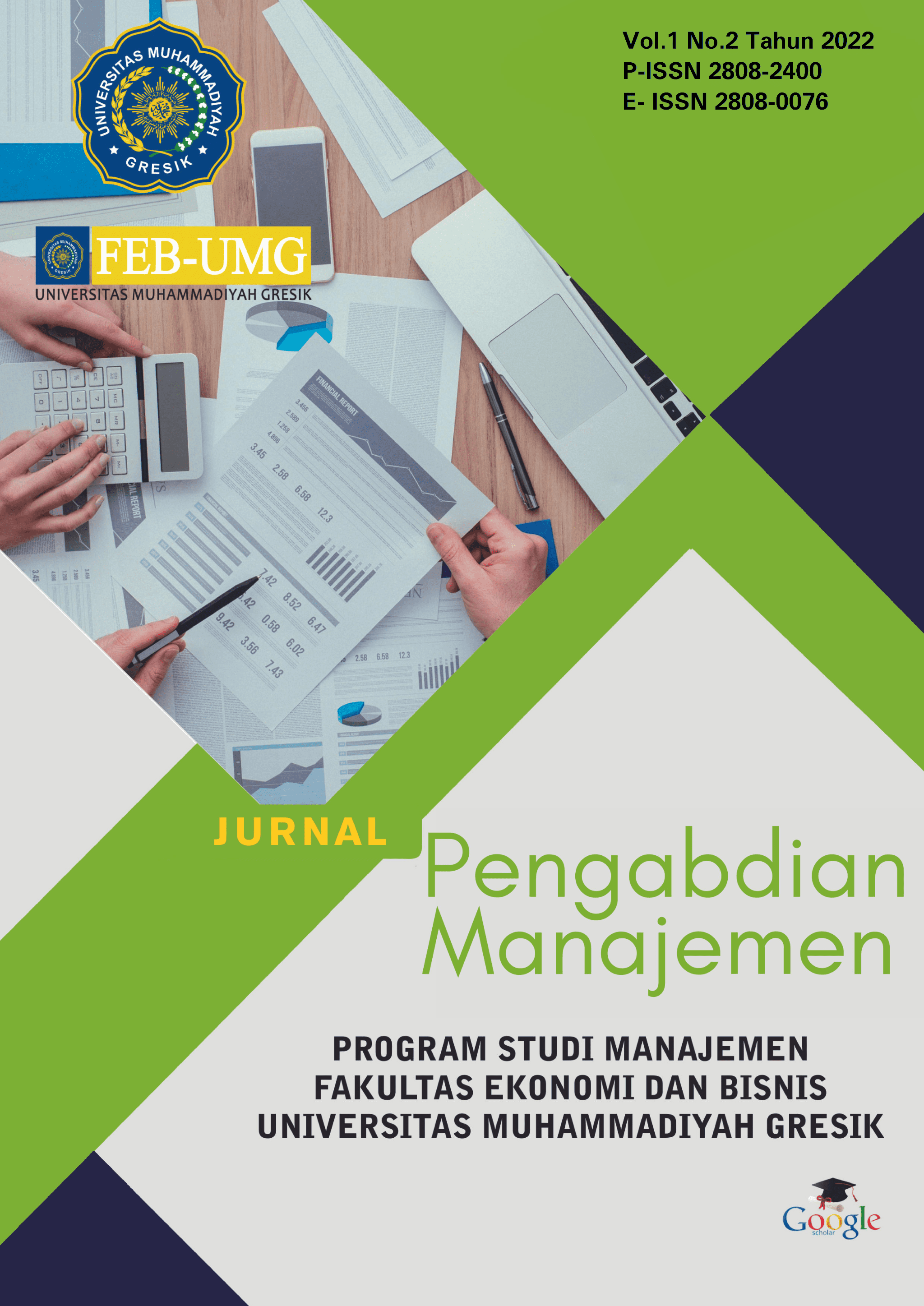Era Pandemi Covid-19 : Pemberdayaan Masyarakat Pengerajin Sangkar Burung Balongpanggang Untuk Meningkatkan Penghasilan
DOI:
https://doi.org/10.30587/jpm.v1i2.3696Keywords:
Covid-19, Pandemic, Era, Bird Cage, IncomeAbstract
Basically, economic development can not only be measured by an increase in the production of goods or services, but can also be seen from the economic aspect and other changes, such as developments in technology, developments in education, available infrastructure, improvements in health, and also can be seen from the increase in income and prosperity of the community. The development of the industrial sector in an area can be marked by the emergence of creative and innovative businesses such as SMEs. One of the potential businesses that many people are engaged in is in the field of handicrafts. In order to be able to increase competitiveness globally, it is expected that economic actors engaged in the handicraft industry are directed to produce a product in the form of goods of high quality and value so that later it is expected to have competitiveness both at home and abroad. Bird cage crafts in the Balongpanggang sub-district have been established for generations. The number of bird cage craft home industries in the region continues to increase. The majority of the population in several villages in the Balongpanggang sub-district choose to become bird cage craftsmen rather than other jobs. The village community continues to pursue bird cage crafts because the results of this work can meet the needs of daily life which so far are still lacking or indeed not fulfilled from agricultural products and can increase income.




